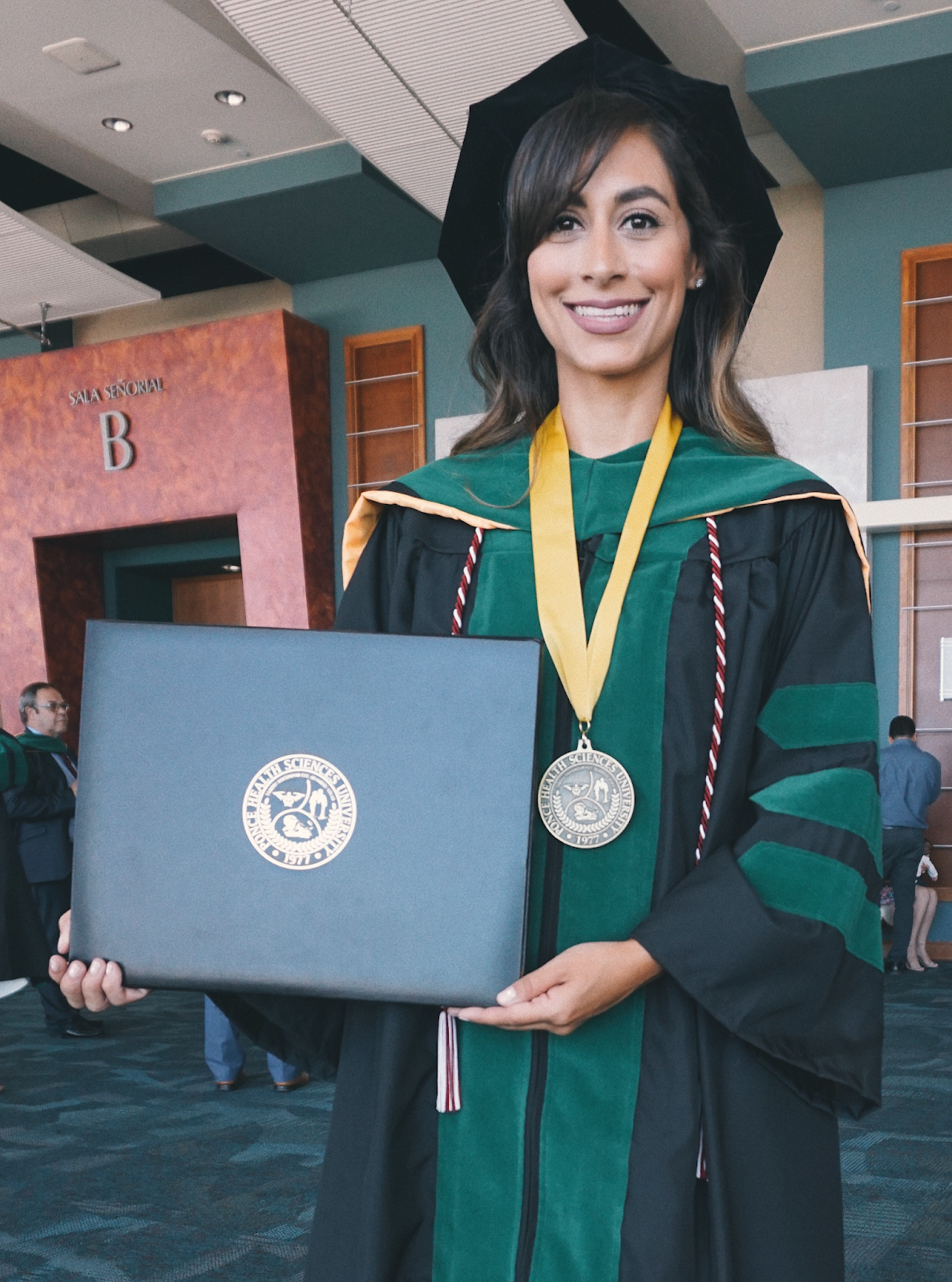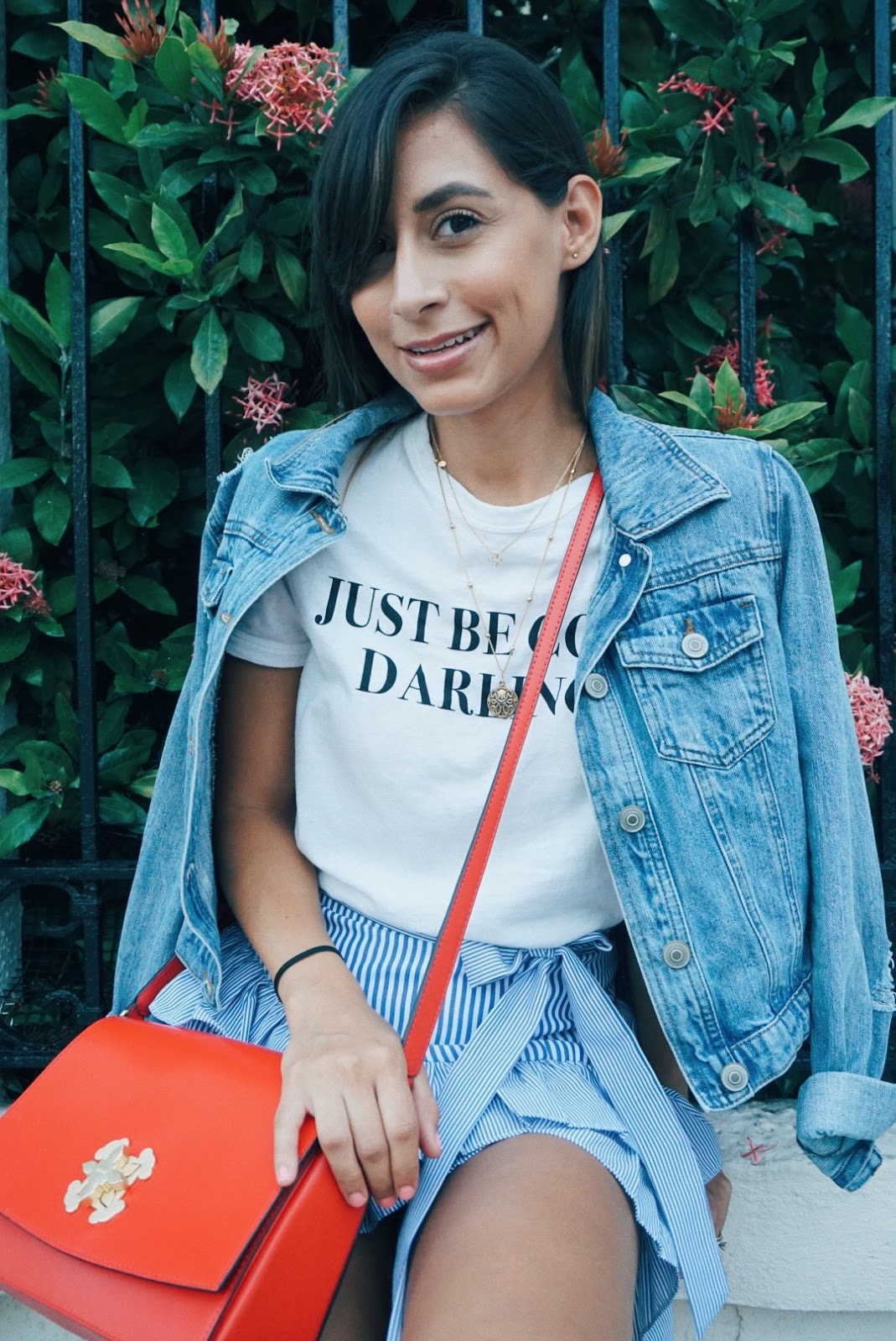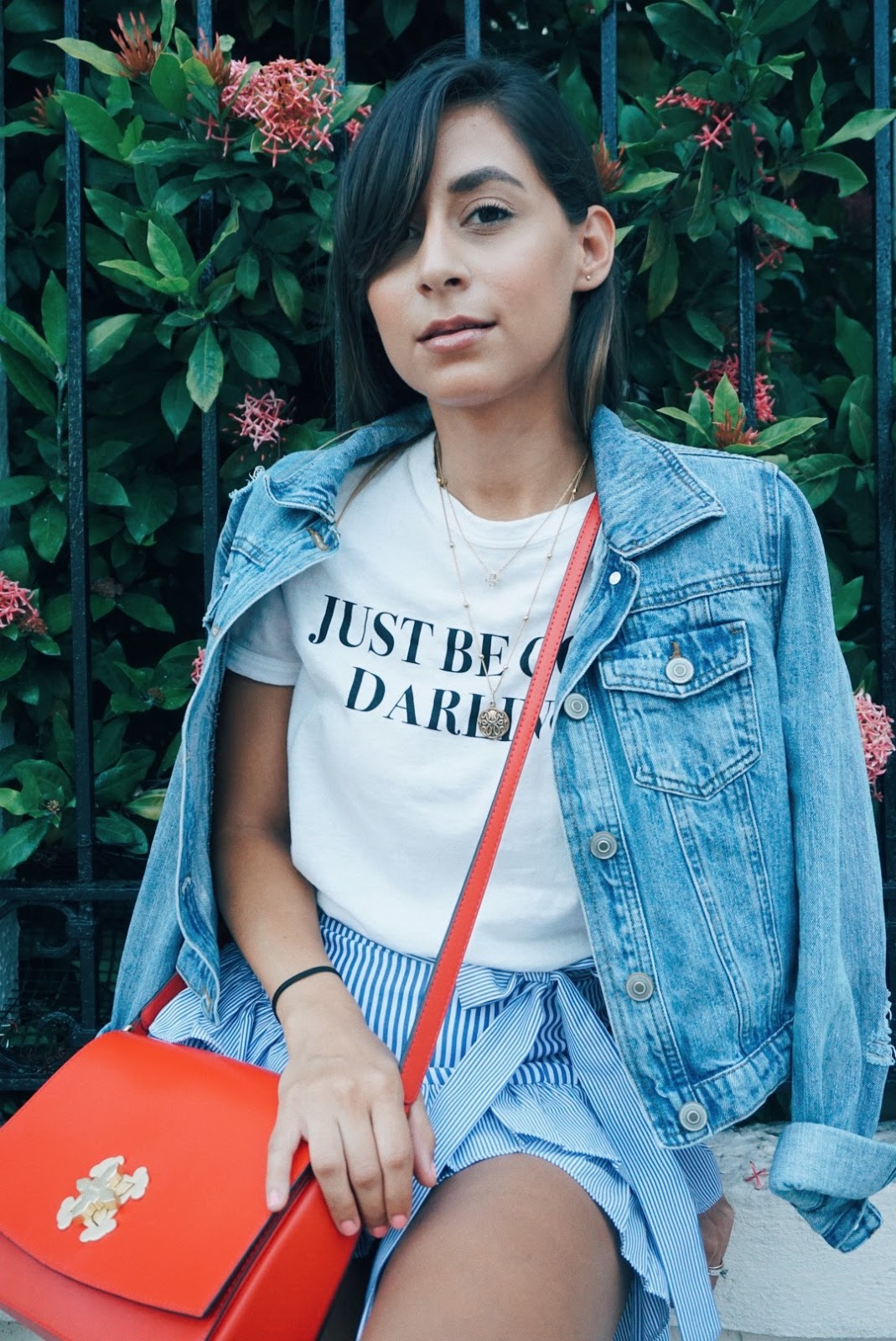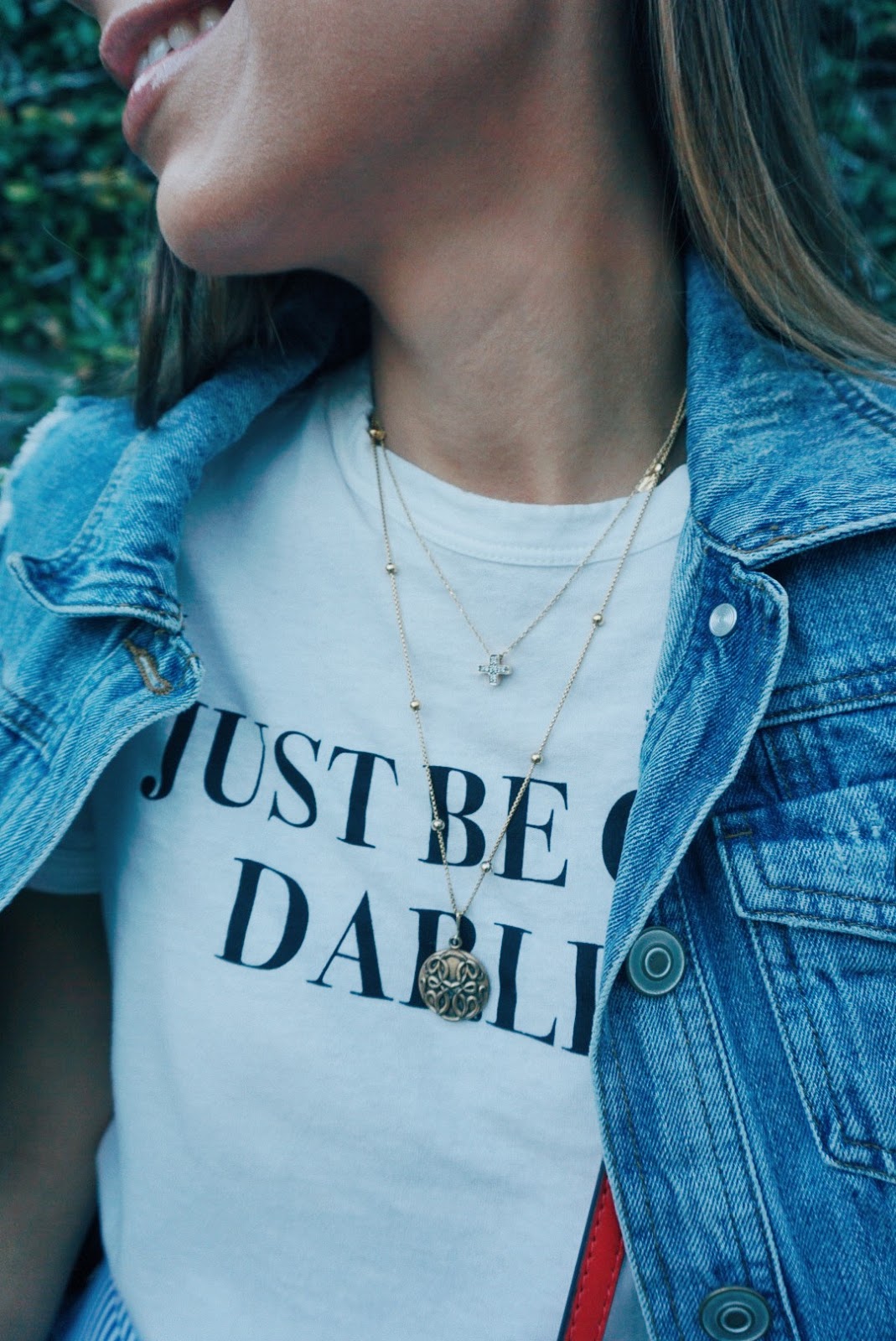30 things I learned before turning 30
November 27, 2019
Hola! It's been a very long time since I wrote here last. In this period, a LOT of things have happened. One of them being my turning the big 3-0. I'll be honest, I'm the type of person who always gets the birthday blues. I'm usually overcome by a general feeling of sadness on my birthday. It's not something I can control, despite my hardest attempts. Have you ever experienced this? Doesn't it suck?
This year I was adamant to keep the birthday blues at bay. On that note, we gathered all the people dearest to me and had a big celebration! It was one of the best days ever! Initially, I was dreading leaving my 20's behind but, looking back, I accomplished so much in that decade: I entered and finished medical school, matched into a general surgery residency program, got married, got a puppy, traveled, became an aunt, and so much more. And to keep the ball moving in the positive direction this new year of life, I've decided to share a list of things I've learned in these 30 years. Here they are (in no particular order):
This year I was adamant to keep the birthday blues at bay. On that note, we gathered all the people dearest to me and had a big celebration! It was one of the best days ever! Initially, I was dreading leaving my 20's behind but, looking back, I accomplished so much in that decade: I entered and finished medical school, matched into a general surgery residency program, got married, got a puppy, traveled, became an aunt, and so much more. And to keep the ball moving in the positive direction this new year of life, I've decided to share a list of things I've learned in these 30 years. Here they are (in no particular order):
1. Don't take yourself too seriously. Guys, life's too short to be worried about what other people are thinking. If you feel like going to the movies in sweats, do it. If you feel like dancing in the plaza, do it. If you want to belt out all your favorite oldies with your friends on a night out, do it.
2. Family is the most important. Make time to spend with them. My grandfather has Alzheimer's disease and I recently interviewed him using StoryCorps but all I could think about was how I wished I would have done it sooner.
3. Your parents are cooler than you think. Dude, I'm serious. One day the most called person on your phone will be your mom.
4. Don't skip your skincare routine. I'm guilty of being "too tired" and skipping my nighttime routine one too many times. I promised my 30-year-old self to never do so again. Moisturize! Use sunscreen! Your skin will thank you!
5. Do what makes you happy. Short and sweet.
6. Challenge yourself daily. Whether it be with a harder workout routine or learning something new to cook, challenge yourself.
7. Giving is better than receiving. Hands down! There's nothing more gratifying than seeing someone's face light up as they open a meaningful gift.
8. A to-do list is the procrastinator's best friend. How satisfying is it to check things off?
9. Quality over quantity when it comes to friendship. I've had the same group of girlfriends since high school with a few added along the way and I couldn't be prouder of the women they've become. We barely talk nowadays because we all lead such busy lives but, you can bet that we'd be there for each other in a millisecond if they needed us.
10. Time mends broken hearts. There's a saying here in Puerto Rico: "Lo mejor que hizo Dios fue un dia tras otro". This basically translates into: The best thing God did was one day after another. It means that no matter how sad or heartbroken you feel today, tomorrow will be a new day and you have to trust that you'll feel a little better.
11. Nobody's perfect.
12. Time waits for no one. Take advantage of every day and live it to the fullest!
13. "I am not what happened to me. I am what I choose to become." You might remember this quote from my post on what I learned in medical school. This is the quote that kept me pushing through when I failed my first board exam. It was one of the hardest things I ever went through but it was one of the things that made me stronger.
14. Learn to forgive. Holding on to anger and grudges can only weigh you down.
15. You can't change how other people act but you can change how you respond to them.
16. Keep your home organized. An organized living space leads to a clutter-free mind. Plus, losing things sucks.
17. Love your body. Love every inch of it. Every scar. Every stretch mark. Every once of cellulite.
18. Laugh as much as possible.
19. Travel often. We aren't all able to do so for so many reasons (e.g. economically, schedules, etc.) but you don't need to fly to India to learn something new about culture or yourself. Find some time to explore locally. You never know what new magical place you'll find.
20. One healthy choice leads to another. One morning you're going to the gym next thing you know, you're skipping that pizza you had your eye on for lunch and opting for a healthier choice instead.
21. Everybody needs a hobby. Find something that keeps you inspired. Learn a new language, go hiking, start a blog!
22. Do what works for you. What works for your friend may not necessarily work for you and that's FINE. You do you.
23. Be present. Let go of your phone at the dinner table and have conversations. No moment happens twice.
24. Be grateful, count your blessings. "Blessings" by Florida Georgia Line is playing in my head right now.
25. Someone else's success doesn't diminish yours. Coming from a very competitive field (medicine and surgery on top of that), this is one that I constantly have to remind myself of.
26. Record your life. Take photos, record videos. Have them to look back on and smile, to show your future children and hopefully grandchildren, to cherish.
27. Always take off your makeup before going to sleep. ALWAYS!
28. Be honest. With your loved ones, with the world, and with yourself.
29. It's okay to binge-watch Netflix in your PJs eating ice cream.
30. Life is a gift.
What is one thing you've learned over your life that has changed you? Let me know below.
Con amor,
Maria Eugenia
The Hacienda: La Mocha
August 20, 2018
Dress/Traje: Forever 21 Shoes/Zapatos: Steve Madden Bag/Cartera: Street Level/La Favorita Earrings/Pantallas: Forever 21 Necklaces/Collares: Vintage + Alex & Ani
¡Hola! Its been quite a long time! As you may know if you follow me on social media, I'm almost 2 months into my surgery residency program. Its been amazing, exhausting, fulfilling, challenging, all at the same time. If you want to catch more of my day to day (or at least what I'm able to share through such busy days), be sure to follow along on Instagram!
Last month though, we had a little break and went up to Hacienda La Mocha for Sunday lunch. This quaint little spot has been renovated following the devastation of Hurricane Maria into a family owned coffee plantation. It is also an eco-friendly guesthouse with a wonderful restaurant on its first floor. Our lunch was delicious and reasonably priced! The grounds (45 acres!) on which this plantation/guest house is set is just breathtaking. Everything from the guest rooms to the decor to the hospitality is just whimsical. We started planning our next visit the moment we left! Find out more about Hacienda La Mocha here and follow them on Facebook here.
SHOP STRIPED DRESSES!
The 5 Things I learned in Medical School
June 13, 2018
¡Hola! Its been a while, I know. I have a good excuse though! I was getting ready for and going through my medical school graduation events! These past weeks have been a whirlwind. I was definitely more overwhelmed with emotion than I thought I would be. The path to where I am now, a doctor of medicine about to begin residency, has been riddled with obstacles and even failures. But, each time I fell down, I got back up ready to keep fighting. One day I hope to feel comfortable enough to dive into the details of those obstacles, but for now I'm going to stick to a more generalized approach.
I am by no means someone who went through medical school with a flawless record. Because of this I learned about more than just medicine; I learned about myself and my own strengths. I thought I'd dedicate this post to those lessons. Maybe some of you are in medical school and need someone to tell you, "Its ok, you're going to make it anyway," but I think some of these lessons come in handy no matter what you're studying.
Let's just say that some schools tend to teach students a little bit of this here, a little bit of that other stuff there, and a dash of something in the middle. Its easy to get lost in all that crucial information, struggling to memorize details, and not put it all together. Sometimes the system is just made up that way. Its up to you to piece it together and form the "big picture". The "big picture" is when you put together what you learned in biochemistry (yes, biochem IS actually very important!) with what you learned in physiology. Its when you understand how the mechanism of that drug actually helps the diseases it is indicated for. Once you can understand something as a "big picture" concept, all the details will come easy to you. You won't need to memorize anymore! (Obviously there are just some things there's no way around memorizing. Microbiology, I'm taking about you!)
You may think that everyone around you in medical school has the highest scores, that they never fail, that everyone does research, etc. That is simply not true. There were classes that I barely passed but celebrated as if I had gotten honors in because of the struggle it was to even pass it! Not everyone does research in prestigious institutions. Some do clinical rotations with mentors or physicians that can provide good letters of recommendations later on, some help out at one of their school's summer programs for undergraduates, some even take their first summer off because the year was too grueling for them or family issues meant they needed to lend a helping hand. Guess what? They can match into a residency.
Not everyone passes each Step (board exams) the first try. Does this mean they have less knowledge? Not necessarily. Maybe they were lacking test-taking skills, maybe they suffer from anxiety, maybe they have an undiagnosed learning disability, maybe personal issues affected their performance. Can they come back stronger, pass and match into a residency? Absolutely. I know of so many people who failed a Step and went on to enter amazing residencies and become outstanding physicians in their fields. Would life be easier if that never happened or we weren't judged by those very scores? Heck yeah, but that's not reality. In reality it can happen to anybody and that is when one of my favorite quotes comes in handy:
"I am not what happened to me, I am what I choose to become"
Everyone's path is different and no one's is perfect. What is best for your best friend/partner in medical school may not be what is best for you. Never judge others for their paths. You never know if you'll find yourself facing the same obstacle. Whatever obstacle comes your way you have to believe that it is there for a reason. Maybe it just wasn't your time yet and you needed to take a step back. Trust me, in the end you will end up where you are meant to be if you keep giving your best.
I love my father's analogy for this lesson: In life you get a herd of sheep. One sheep is your studies, the other is your love life, the other is your family, and so on. You have to learn to keep all your sheep together because once you look the other way and let one of those sheep slip from your grasp, there's sure to be a wolf nearby.
Life isn't going to be waiting for you on the other side of medical school. Just because you're in medical school doesn't mean you can't be in a relationship, you can't be or get married, or you can't have children. Does it make it harder? Sometimes.
I personally got married during my third year of medical school while my husband was finishing his fourth year and about to enter residency. Honestly, it was the best decision I ever made. There was always someone there who understood what I was going through. No matter what would happen, I knew I was never alone and he was always on my team. There was always someone to hold me while I cried. I'm truly lucky to have married my best friend.
So, why do I say "sometimes"? Well, there is the added pressure of financial responsibilities, of being a good wife (as society can make you feel you need to be, by which standards you don't have to hold yourself up to by the way!) while being a full-time medical student, etc. In my experience these factors don't outweigh the happiness of my marriage and what it brings to my life both personally and professionally. I even know of people who have children before and/or during medical school and also make it through. My husband is an excellent example. These are the most driven people you will meet in medical school because they are fully aware of their responsibilities and priorities. They have my upmost respect.
Is it only about relationships? No! You're friends and family are going to have parties, weddings, and babies. You are going to miss some of it (probably a lot) but if you can organize yourself properly and prioritize, you can make it to others! I think the important thing is to make time for it and understand that although medical school is a huge part of your life, it isn't all of it.
This is as important as knowing your pharmacology and physiology. If you don't know your limits, you will burnout. Whenever you feel like you need a break, take it. Go for a walk, workout, take a shower, read a book for pleasure, watch your favorite TV show, anything that will let you recharge. Going along with lesson #3, take advantage of weekends you don't have to study as much and go on a trip with friends/family/loved one. Get back in touch with others or get back in touch with yourself. Pushing yourself is good, but pushing yourself past your limits is not.
Balance yourself with knowing your strengths. For example, I know I'm a strong competitor during clinical rotations and I learn more when I'm out in the hospital or in clinics putting to use what I've read. I also know that the best time for me to study is in the morning and early afternoon. Once the night hits, its hard for me to grasp concepts and you'll never find me studying past 10pm (during clinical years) or 12am (during basic sciences years where you spent days in the classroom). You could be the complete opposite as me and that is OK! Do whatever works for you!
If you ever feel too overwhelmed with your workload or are experiencing symptoms of depression (depressed mood, changes in sleep habits, decreased appetite, lost of interest, feelings of guilt, decreased energy, difficulty concentrating), look for help. Talk to you school counselor or look for a psychologist/physicshiatrist. There is no shame in mental illness.
If you or someone you know is considering suicide, please contact the National Suicide Prevention Lifeline at 1-800-273-TALK (8255), text “help” to the Crisis Text Line at 741-741 or go to suicidepreventionlifeline.org.
This last one is kind of cheating. My father has been teaching me this ever since I can remember but I never put it to so much use as I did in medical school. I promise you that no matter what happens, if you keep fighting towards accomplishing your dream and you don't give up, you will get there. Even though at times it may seem impossible or you may feel like giving up, take a step back and analyze your options and strategies. If you fall down, you get up with a plan. You tackle that obstacle head on. You talk to your mentors, you find other's who have been through the same thing, you look for advice. You are not alone and whatever you are going through be sure that you're not the first nor the last. Keep repeating to yourself:
"Never give up."
I hope to one day have the courage to share my entire journey through medical school with you guys. I hope this reached someone. I'm always available for help or advice. If you wish to contact me privately, use the contact form. If you are in medicine and have learned any special life lesson I haven't mentioned here, let me know below! I'm always up for learning!
Con amor,
The Pop of Red and Issues of the Heart
May 25, 2018
¡Hola! I wanted to try something a little different in this post and incorporate some of my medical knowledge within the usual styling post. As a health professional, I'm passionate about sharing my knowledge with others so as to offer a better understanding of disease processes and what we can do to prevent and/or treat them in ways that anyone can understand. Today I'm going to focus on a very important women's health issue, inspired by the red bag I'm wearing in this post:
Heart Disease
Now you may be thinking, "María, I'm 25-34 years old. I'm healthy and its going to be a long time before I have to think about these issues." Well, think again. Prevention is the best way to tackle these chronic and sometimes fatal diseases. The earlier we start working towards healthier goals, the better.
Let's start off with some basic facts:
- Cardiovascular diseases (CVD) are the leading causes of morbidity and mortality among women worldwide .
- This means that diseases that affect the heart are the leading causes of death and other related disease processes in women.
- Scientific research in the past decade has identified a set of risk factors for CVD that may be specific to women.
- There are some risk factors that research has found to be specific for women, therefore these are the risks we should be more mindful of and actively try to diminish.
Traditional risk factors can be categorized into 2 groups: non-modifiable and modifiable. Non-modifiable risk factors are, as the name suggests, factors that cannot be modified. The only risk factor specific to women in this category is:
- Age
- As women age and enter menopause they lose the cardio-protective effect of estrogen. Estrogen is a hormone which, besides playing an important role in our menstrual cycle, keeps our blood vessels dilated which in turn, keeps the blood flowing.
Although we can't stop aging, there are many modifiable risk factors that we can begin tackling from an early age:
- Smoking
- 13% of women 18 years or older are current smokers in the US.
- Women who smoke have a 25% greater risk of developing Coronary Artery Disease (when the blood vessels that feed our heart are damaged) than male smokers
- This means that although your boyfriend/husband also smokes, YOU have a 25% greater chance of developing heart disease than he does!
- What can YOU do: Ask your doctor for smoking cessation counseling. There are pharmacological options to help you quit smoking. If you don't smoke, avoid environmental tobacco smoke. Secondhand smoke is also dangerous to your health.
- Obesity
- 40.4% of the obese adults aged 20 years or older in the US are women.
- This means that women make up 40.4% of adults in the US with a BMI of over 30.
- What is BMI? BMI stands for Body Mass Index and it is a measure of body fat based on height and weight.
- Don't know your BMI? You can calculate it by using the formula: BMI= weight (kg)/ height (meters squared). Or you can just insert your details into a BMI calculator.
- What can YOU do: Women should maintain or lose weight through appropriate physical activity, caloric intake, and formal behavioral programs to achieve a BMI goal of <25kg/m2 or waist size <35"
- What is the recommended physical activity? At least 150 min/week of moderate exercise or 75min/week of vigorous exercise and muscle strengthening activities at least 2 days/week
- Talk to your doctor and/or a nutritionist about the appropriate caloric intake for you because this also depends on your daily activity.
- Hypertension
- Black and Hispanic women have significantly higher hypertension.
- Although antihypertensive agent trials do not report sex-specific analysis for efficacy or adverse effects profiles, a blood pressure target of <120/80 is generally recommended.
- What can YOU do: When you are at your doctor's visit, be aware of your blood pressure. If it is over 120/80 twice, talk to your doctor about possible lifestyle changes you can make to keep your blood pressure below that. If you have been diagnosed with hypertension and are talking medication, continue to do so as instructed by your doctor. If you are taking your medication as instructed but you have had home blood pressure readings of >120/80, talk to your doctor about possible changes to your medications.
- Dyslipidemia (abnormal amount of lipids [triglycerides, cholesterol] in your blood)
- 42% of women 20 years or older have a total cholesterol count of >200 mg/dl.
- 30% of women 20 years or older have an LDL count of >130 mg/dl and an HDL count of <40 mg/dl
- What does this all this mean? Both cholesterol and LDL are lipid molecules that can cause atherosclerosis, a disease in which blood vessels narrow due to the formation of a plaque.
- As blood vessels narrow, less blood can flow through them and this leads to areas of your heart/body that do not get the blood they need.
- HDL is the "good cholesterol" because it transports cholesterol to the liver where it can be removed by the body so we need more of this type and less of cholesterol and LDL.
- What can YOU do: The Center for Disease Control (CDC) reported that women were less likely to be prescribed statin therapy than men. Statin therapy is the appropriate treatment if LDL >190 mg/dl.
- Talk to your doctor about receiving this treatment or if lifestyle modifications are right for you if you notice your cholesterol/LDL levels are elevated in routine lab work.
- Diabetes Mellitus (DM)
- Although DM Type 1 affects women and men equally, women are at twice the risk of fatal and nonfatal vascular events compared to men with DM Type 1.
- Women are also less likely to have appropriate glycemic control and receive less aggressive treatment for many modifiable coronary artery disease risk factors than men.
We can't catch a break, can we?
- What can YOU do: If you suffer from DM Type 1, make sure to establish glycemic control by the proper lifestyle/diet modifications as indicated by your doctor/nutritionist. Also, keep an HbA1c goal of <7%.
Let's sum up the actions we as women can take to decrease our risk of developing cardiovascular disease:
- If you are a current smoker, talk to your doctor for smoking cessation counseling.
- Avoid environmental tobacco smoke (secondhand smoke).
- Have a BMI goal of <25km/m2. Achieve this by participating in at least:
- 150 min/week of moderate exercise or 75min/week of vigorous exercise
- Muscle strengthening activities at least 2 days/week
- Talk to your doctor and/or nutritionist about adequate caloric intake.
- Be aware of your blood pressure at each doctor's visit. You blood pressure goal should be <120/80. If your blood pressure is over this goal at 2 visits, talk to your doctor about possible further evaluation/lifestyle changes/treatment.
- If you have been diagnosed with hypertension, take your medication as instructed. If you are taking your medication as instructed but still have blood pressure readings of >120/80, talk to your doctor about further evaluation/changes in treatment.
- If you notice that your cholesterol levels are elevated in routine lab work (e.g. Cholesterol >200 mg/dl, LDL >190 mg/dl), talk to your doctor about lifestyle changes/treatment options.
- If you suffer from Diabetes Mellitus Type 1, have a goal HbA1c of <7%. If your HbA1c is higher than this, talk to your doctor about your diet and insulin regimen for possible changes.
Top/Camisa: Zara (similar here, here, and here) Skirt/Falda: Forever 21 (limited sizes, check out this midi option and this plus size option) Jacket/Abrigo: Forever 21 Shoes/Zapatos: Converse Jewelry/Joyería: Alex and Ani Bag/Cartera: Tous (c/o)
As the beginning of my surgery residency approaches, more health posts will also be popping up here on the blog. I want to try to prepare posts that a medical student can learn something from but the general public will also understand. What did you think? Did any of these recommendations resonate with you? Would you like to see more posts like these or should I keep health and style posts separate? Let me know below!
Con amor,
María Eugenia
*On matters of health, although I am a doctor in medicine, I am NOT your primary physician. I will always recommend you seek out your primary physician if you have any health concerns for consultation and proper management as indicated by updated guidelines of care. None of my posts replace actual medical guidance. Read my full disclosure here.
SHOP THE LOOK!
Subscribe to:
Posts (Atom)

























































Social Icons